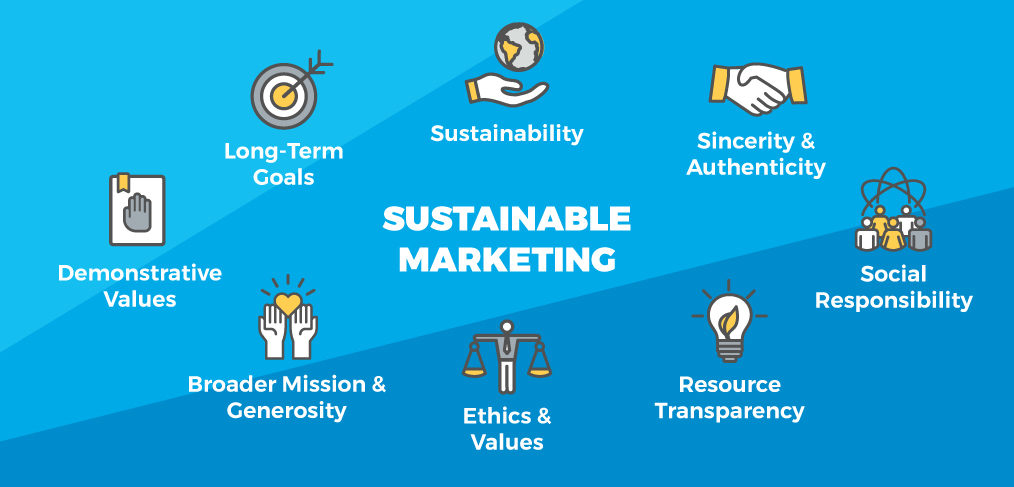Sustainability is now a crucial factor that companies in all sectors must take into account. Companies are forced to incorporate sustainability into all aspects of their business operations, including marketing strategies, as consumers grow more socially and environmentally aware. This article explores how companies have changed to meet shifting societal demands and consumer expectations by delving into the evolution of sustainability marketing strategies.
The Rise of Purpose-Driven Marketing
Businesses understood how important it was to match their marketing initiatives with purpose-driven messaging as consumer awareness and demand for sustainability increased. Sustainability and social responsibility are incorporated into a company’s primary brand identity and business plan through purpose-driven marketing, which goes beyond traditional CSR. Prominent brands initiated a strategy of projecting themselves as catalysts of constructive transformation, promoting ecological preservation, equitable social outcomes, and principled commercial conduct. Employing engaging stories, open communication, and significant collaborations with NGOs, governments, and other stakeholders, they effectively conveyed their dedication to sustainability.
Innovation and Collaboration
The development of sustainable marketing strategies has been greatly aided by innovation and cooperation. To promote sustainable innovation and meaningfully interact with customers, businesses are using technology, data analytics, and partnerships more and more. A noteworthy development is the rise of circular economy initiatives, which aim to maximize resource efficiency and reduce waste across the whole lifecycle of a product. Companies are investigating novel business models to lessen their impact on the environment and provide value for customers, such as closed-loop systems, sharing platforms, and product-as-a-service. As companies collaborate across sectors to address complex environmental and social challenges, collaboration has become essential in sustainability marketing as well. Together, businesses, NGOs, governments, and academic institutions are coordinating to drive collective action toward common sustainability goals, thereby increasing the impact of individual initiatives.
Authenticity and Transparency as Key Pillars
The increasing prevalence of initiatives has led to the recognition of authenticity and transparency as crucial success factors. Customers are becoming more astute and doubtful, and they want sincere promises supported by concrete deeds and quantifiable outcomes. For their initiatives to be in line with their internal procedures and core values, businesses need to be willing to walk the walk. Communicating sustainability initiative successes and challenges in an open, truthful, and accountable manner is necessary for authenticity.
Future trends in consumer preferences, technology breakthroughs, and worldwide issues like social inequality and climate change will all likely have an impact on how sustainability marketing develops. Companies that embrace sustainability will need to do so in a proactive, flexible, and agile manner, incorporating it into all facets of their business operations and promotional plans. Regenerative methods, which replenish and restore ecosystems and natural resources, are the next step beyond sustainability. using digital tools like blockchain and artificial intelligence to supply chains to provide traceability, accountability, and transparency. supplying customers with the knowledge, resources, and motivation they need to make sustainable decisions and hold businesses responsible for the effects they have on the environment and society.
The development of sustainability marketing is indicative of a larger movement in business toward a more accountable and purpose-driven mindset. In addition to meeting the ever-higher expectations of consumers, businesses can help create a more sustainable and just future for all by embracing authenticity, transparency, innovation, and collaboration.




Leave a reply